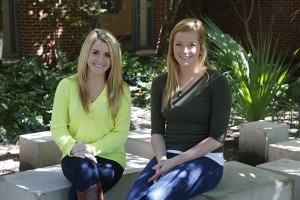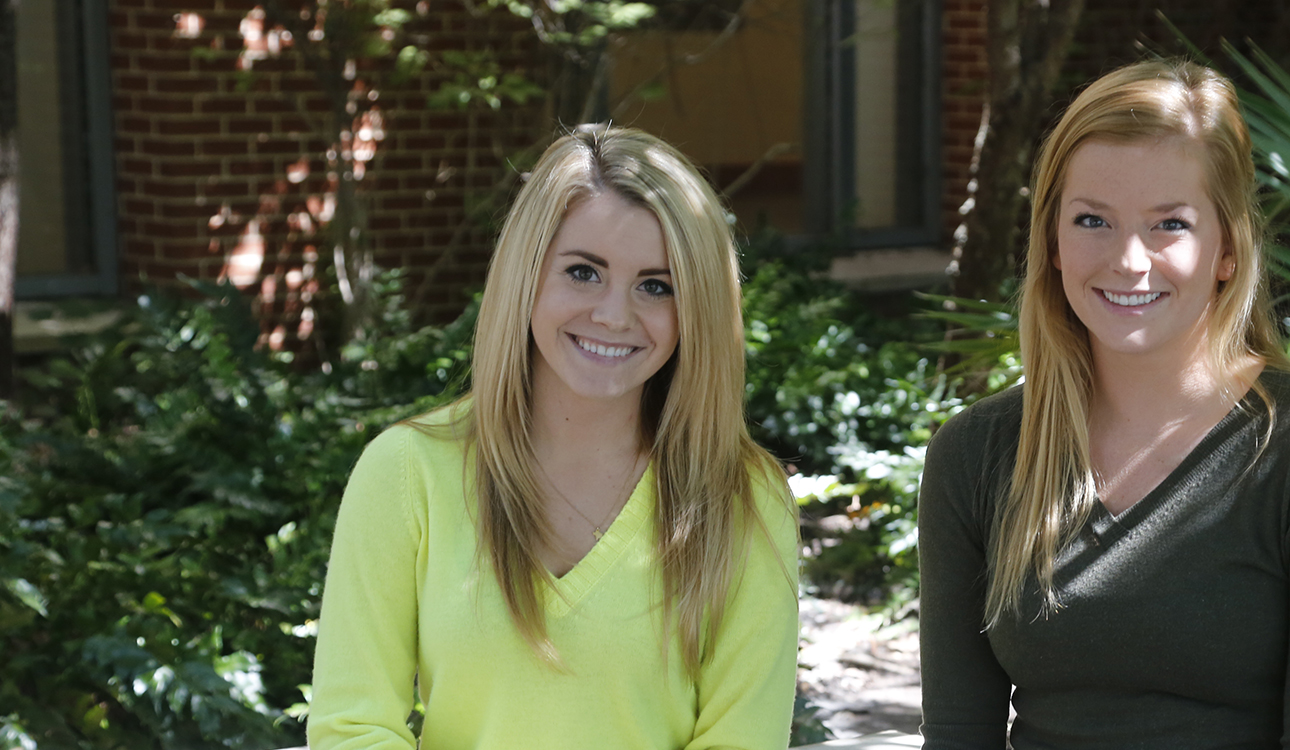
Robby Hirst | Lariat Photographer
Reporter
Two Baylor law students will try to argue their way to the top in pursuit of protecting civil rights and liberties.
Faith Johnson, San Antonio 2nd year law student, and Kelsey Warren, Decatur 2nd year law student, will compete together in the Andrews Kurth Moot Court National Championship hosted by the University of Houston Law Center January 22-25, 2014.
The competition is a moot court, which does not involve actual testimony by witnesses or the presentation of evidence, but it focuses solely on applying the law to a predetermined case. All competitors have access to the case problem in advance. The case problem is a simulated case that defines issues to be argued.
The case problem was released Thursday and the team has already started to prepare although the competition is months away.
The team just returned from a moot court competition that took place from Oct. 11-13.
Johnson and Warren competed in and won first place in the competition, which was the sixth annual Emory University School of Law Civil Rights and Liberties Moot Court Competition at Emory University School of Law Gambrell Hall in Atlanta, Ga.
All schools were limited to sending two teams. Each could have included two or three students.
Two teams went to the competition from Baylor Law School. Faith Johnson and Kelsey Warren made up one team, and 2nd year law students Brittney Symons and Scott Nyitray were on a team.
Professor Larry Bates, Inter-Scholastic Moot Court team coach and a professor in the law school, accompanied the teams to the competition.
“Both of the teams were fabulous,” Bates said. “They truly put the best face on Baylor law school that any one could have put on. And they were fun to work with too.”
The teams began the preparation process on Aug. 1, when the case problem was released. The case was a civil rights case with two internal issues, a fifth amendment issue and an eighth amendment issue.
Each team had until Sept. 6 to submit a 30-page written brief. The brief is a written legal document presented to a court arguing why one party to a particular case should prevail.
“The brief writing period is called the ‘blackout’ period,” Bates said. During this period, the teams were not permitted to seek assistance from Bates or any other faculty.
From Sept. 6 to Oct. 9, the day before departure, the students practiced and prepared with Bates. Faith said by the time they got to the competition, there wasn’t a question they hadn’t heard because they had so many practice rounds, with different faculty members, professors, practitioners and lawyers in town.
“Confidence is really important, but you only get that from being extremely well prepared,” Johnson said.
The competition lasted three days and seven rounds.
Only 16 teams survived the three preliminary rounds.
“Once you get past the preliminary rounds, it works just like the NCAA basketball tournament,” Bates said. “After the cut, there is an octa-final round, quarter final round, semi-final round and final round.”
The judges and competitors change from round to round, and competitors have to be prepared to argue both sides of the argument because they don’t know until the coin flip at the beginning of the round which side they will be arguing.
Each round was judged by practicing lawyers and judges.
The competitors were scored on a point system that rated total “speaker points”, Warren said.
The points were received based on their knowledge of the case law, the case facts and public policy.
They also received point for general presentation style, speaking style, and ability to answer questions. The team with the most “speaker points” by the final round was the winner.
In the final round the panel had three particularly prominent personas.
“We had the opportunity to be judged by an eighth circuit court of appeals judge, a third circuit court of appeals judge and a federal judge,” Johnson said.
Johnson and Warren argued the case for the last time in a vast auditorium.
During the final round, the competitors faced the judges on one side of the stage, while the audience sat side on in their peripheral vision, Johnson said.
Instead of letting nerves get the best of them, Johnson and Warren remained unwavering.
“In the final round, we were very calm. We were on. We were ready to go. We were ready to win,” Warren said.
Their extreme preparation paid off on Sunday when Johnson and Warren were announced the winning team of the 2013 Emory Civil Rights and Liberties Competition.
The two said they worked well with each other and they look forward to competing together again in January.
“Winning felt really great,” Warren said. “We hope to do it again.”






